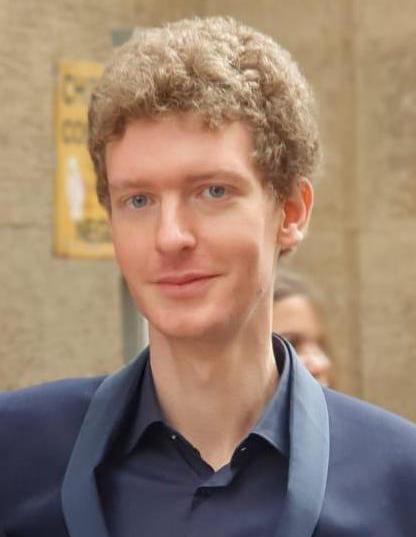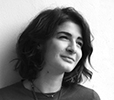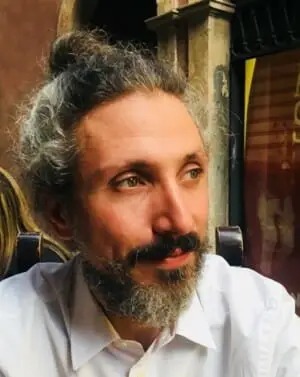Studying at the University of Verona
Here you can find information on the organisational aspects of the Programme, lecture timetables, learning activities and useful contact details for your time at the University, from enrolment to graduation.
Academic calendar
The academic calendar shows the deadlines and scheduled events that are relevant to students, teaching and technical-administrative staff of the University. Public holidays and University closures are also indicated. The academic year normally begins on 1 October each year and ends on 30 September of the following year.
Course calendar
The Academic Calendar sets out the degree programme lecture and exam timetables, as well as the relevant university closure dates..
| Period | From | To |
|---|---|---|
| Sem. 1A | Sep 27, 2021 | Nov 6, 2021 |
| Sem. 1B | Nov 15, 2021 | Jan 12, 2022 |
| Sem. 2A | Feb 14, 2022 | Mar 26, 2022 |
| Sem. 2B | Apr 4, 2022 | Jun 4, 2022 |
| Session | From | To |
|---|---|---|
| Sessione Invernale | Jan 10, 2022 | Feb 12, 2022 |
| Sessione estiva | Jun 6, 2022 | Jul 23, 2022 |
| Sessione autunnale | Aug 29, 2022 | Sep 24, 2022 |
| Session | From | To |
|---|---|---|
| Sessione estiva | Jul 11, 2022 | Jul 16, 2022 |
| Sessione autunnale | Nov 7, 2022 | Nov 12, 2022 |
| Period | From | To |
|---|---|---|
| FESTIVITA' OGNISSANTI | Nov 1, 2021 | Nov 1, 2021 |
| Festa dell'Immacolata | Dec 8, 2021 | Dec 8, 2021 |
| Vacanze di Natale | Dec 25, 2021 | Jan 6, 2022 |
| VACANZE DI PASQUA | Apr 15, 2022 | Apr 19, 2022 |
| Festa della Liberazione | Apr 25, 2022 | Apr 25, 2022 |
| FESTA DEL LAVORO | May 1, 2022 | May 1, 2022 |
| Festività Santo Patrono di Verona | May 21, 2022 | May 21, 2022 |
| Festa della Repubblica | Jun 2, 2022 | Jun 2, 2022 |
| Vacanze estive | Aug 8, 2022 | Aug 15, 2022 |
Exam calendar
Exam dates and rounds are managed by the relevant Humanistic Studies Teaching and Student Services Unit.
To view all the exam sessions available, please use the Exam dashboard on ESSE3.
If you forgot your login details or have problems logging in, please contact the relevant IT HelpDesk, or check the login details recovery web page.
Should you have any doubts or questions, please check the Enrollment FAQs
Academic staff
 francesco.bianchi@univr.it
francesco.bianchi@univr.it
 evita.calabrese@univr.it
evita.calabrese@univr.it
 andrea.cavalletti@univr.it
andrea.cavalletti@univr.it
 elena.desilvestri@univr.it
elena.desilvestri@univr.it

Mastrocinque Attilio
 attilio.mastrocinque@univr.it
attilio.mastrocinque@univr.it
 +39 045802 8386
+39 045802 8386
 stefania.pontrandolfo@univr.it
stefania.pontrandolfo@univr.it
 pieralberto.porcedducilione@univr.it; pierre_pordd@yahoo.it
pieralberto.porcedducilione@univr.it; pierre_pordd@yahoo.it
 045 8028732
045 8028732
 nicola.turrini@univr.it
nicola.turrini@univr.it
 mariarenata.zanchin@univr.it
mariarenata.zanchin@univr.it
Study Plan
The Study Plan includes all modules, teaching and learning activities that each student will need to undertake during their time at the University.
Please select your Study Plan based on your enrollment year.
1° Year
| Modules | Credits | TAF | SSD |
|---|
2° Year activated in the A.Y. 2022/2023
| Modules | Credits | TAF | SSD |
|---|
3° Year activated in the A.Y. 2023/2024
| Modules | Credits | TAF | SSD |
|---|
| Modules | Credits | TAF | SSD |
|---|
| Modules | Credits | TAF | SSD |
|---|
| Modules | Credits | TAF | SSD |
|---|
| Modules | Credits | TAF | SSD |
|---|
Legend | Type of training activity (TTA)
TAF (Type of Educational Activity) All courses and activities are classified into different types of educational activities, indicated by a letter.
Type D and Type F activities
Una quota dei crediti corrispondenti all’attività formativa dell’intero triennio, determinata dal presente Regolamento in 12 CFU, è riservata alla scelta autonoma da parte della/o studente. Questa scelta può essere orientata sia verso corsi/esami non seguiti/sostenuti in precedenza, sia verso iterazioni di corsi/esami, sia ancora verso altre attività (tutorati, ulteriori competenze linguistiche, partecipazione a convegni o seminari), purché tutte preventivamente approvate dal Collegio Didattico e/o dalla Commissione Didattica del Dipartimento. Tra i 12 crediti dovrà comunque essere presente almeno un esame con voto. In conformità al dettato del D.M. 270/04 e alla luce delle raccomandazioni espresse dal D.M. 26 luglio 2007, capo 3 lettera n), la scelta, che non può essere predeterminata (fatto salvo quanto indicato per le iterazioni), deve comunque essere ispirata a coerenza col piano formativo della/del singola/o studente.
In caso di attività formative non rientranti nelle categorie previste, si dovrà fare richiesta di valutazione al Collegio Didattico di Filosofia fornendo adeguate motivazioni.
Altre informazioni sono reperibili nella Guida per i crediti liberi che è possibile trovare quì
COMPETENZE TRASVERSALI
Scopri i percorsi formativi promossi dal Teaching and learning centre dell'Ateneo, destinati agli studenti iscritti ai corsi di laurea, volti alla promozione delle competenze trasversali:
https://talc.univr.it/it/competenze-trasversali
| years | Modules | TAF | Teacher |
|---|---|---|---|
| 1° 2° 3° | What paradigms beyond the pandemic? | D |
Paola Dal Toso
(Coordinator)
|
| 1° 2° 3° | The contagion and the cure. The world after the virus | D |
Carlo Chiurco
(Coordinator)
|
| 1° 2° 3° | The ethics and aesthetics of the image | D |
Gianluca Solla
(Coordinator)
|
| years | Modules | TAF | Teacher |
|---|---|---|---|
| 1° 2° 3° | What paradigms beyond the pandemic? | D |
Paola Dal Toso
(Coordinator)
|
| 1° 2° 3° | The contagion and the cure. The world after the virus | D |
Carlo Chiurco
(Coordinator)
|
| 1° 2° 3° | Laboratorio “Calendario di Memoria Civile – Giornata della Memoria” | D |
Olivia Guaraldo
(Coordinator)
|
| 1° 2° 3° | Eros and Polis ”and“ In the name of Tiresias: Subjectivation, transit, sexuation | D |
Federico Leoni
(Coordinator)
|
| years | Modules | TAF | Teacher |
|---|---|---|---|
| 1° 2° 3° | Introduction to robotics for humanities students | D |
Paolo Fiorini
(Coordinator)
|
| years | Modules | TAF | Teacher |
|---|---|---|---|
| 1° 2° 3° | "Common world. 2022 Arendt Seminars | D |
Ilaria Possenti
(Coordinator)
|
| 1° 2° 3° | Restorative Justice | D |
Cristina Lonardi
(Coordinator)
|
| 1° 2° 3° | Group Psychology and the Analysis of the Ego, a hundred years later: social bond and new forms of subjectivation. | D |
Matteo Bonazzi
(Coordinator)
|
| 1° 2° 3° | The contagion and the cure. The world after the virus | D |
Carlo Chiurco
(Coordinator)
|
| 1° 2° 3° | Gnoseology and Metaphysics Workshop | D |
Davide Poggi
(Coordinator)
|
| 1° 2° 3° | Eros and Polis ”and“ In the name of Tiresias: Subjectivation, transit, sexuation | D |
Federico Leoni
(Coordinator)
|
| years | Modules | TAF | Teacher |
|---|---|---|---|
| 1° 2° 3° | "Common world. 2022 Arendt Seminars | D |
Ilaria Possenti
(Coordinator)
|
| 1° 2° 3° | Partecipated justice and reforms. The settlement of conflicts with people and for people | D |
Cristina Lonardi
(Coordinator)
|
| 1° 2° 3° | Gnoseology and Metaphysics Workshop | D |
Davide Poggi
(Coordinator)
|
| 1° 2° 3° | Eros and Polis ”and“ In the name of Tiresias: Subjectivation, transit, sexuation | D |
Federico Leoni
(Coordinator)
|
Aesthetics (2022/2023)
Teaching code
4S00868
Teacher
Coordinator
Credits
6
Language
Italian
Scientific Disciplinary Sector (SSD)
M-FIL/04 - AESTHETICS
Period
Sem. 2A dal Feb 13, 2023 al Mar 30, 2023.
Learning objectives
Aesthetics
The course aims to provide the conceptual, methodological and cultural foundations for analyzing and interpreting aesthetic problems in the strict sense (sensitive perception and knowledge) and works of art in a broader sense. In this sense specific knowledge is transmitted (interpretative theories and artistic practices within the context of history of Western aesthetical reflection) which, subsequently, are applied to specific problems (perception in general and to particular works). The course aims to make people understand the conceptual logics and structures, through which aesthetical experience lets us comprehend the world we live, and transform it. At the end of course, students will develop the ability to comprehend a philosophical text, to correctly approach it from a hermeneutical perspective, and to use a precise and adequate language; moreover, it aims at allowing the student to acquire the competences to confront himself with the sensitive perception and with the artistic world so as to be able to independently form a critical judgment. Finally, students will have the capacity to communicate philosophical contents to specialists and non-specialists alike, and to continue their studies at a MA level.
Prerequisites and basic notions
Nessuno
Program
UNDERSTAND CREATION
The course will be divided into three sections. 1) A first section will propose a short historical-conceptual path on the issues of Aesthetics and Philosophy of Art, to allow students to become familiar with some fundamental concepts of the discipline.
2) A second section will propose the articulation of a short glossary of Aesthetics, with a particular focus on the contemporary debate. 3) A third section will analyze more specifically the theme of the concept of creation, both in the broader philosophical meaning, and in that specifically linked to aesthetic reflection and artistic practice.
REFERENCE TEXTS
Preparation for the exam consists of two mandatory texts and a text chosen from the list below.
1) Mandatory texts:
M. Ophälders, Filosofia Arte Estetica, Mimesis, Milano 2008
A. Pinotti (a cura di), Il primo libro di Estetica, Einaudi, Torino 2022
2) A text chosen from those listed below:
W. Tatarkiewicz, Storia di sei idee, Aesthetica, Palermo 2001
G. Steiner, Grammatiche della creazione, Garzanti, Milano 2014
A. Koestler, L’atto di creazione, Astrolabio, Roma 1978
G. Scholem, I segreti della creazione, Adelphi, Milano 2003
G. Agamben, Creazione e anarchia, Neri Pozza, Vicenza 2017
J.-L. Nancy, La creazione del mondo, Einaudi, Milano 2003
G. Deleuze, L’atto di creazione, Cronopio, Napoli 2009
N. Berdjaev, Il senso della creazione, Jaca Book, Milano 2018
P. Valéry, La creazione artistica, Morcelliana, Brescia 2017
P. Montani, Tre forme di creatività, Cronopio, Napoli 2017
E. Garroni, Creatività, Quodlibet, Macerata 2009
K. Bardsley, M. Krausz, D. Dutton (a cura di), The Idea of Creativity, Brill, Leiden 2009 (in inglese)
Didactic methods
Although the lectures will play an important role, they will be enriched by the confrontation generated by collective discussions. A close reading and a precise analysis of the proposed philosophical texts will be encouraged. These will be multisensory experiences, aimed at expanding students’ critical, perceptual and cognitive abilities.
Audio-video e-learning material will be provided.
Learning assessment procedures
- The exam will consist of an oral interview with the teacher on the topics developed in class and on the texts in program.
- The content of the test will be divided into three parts: a first part, to verify the knowledge of discipline’s grounds and its history (aesthetics in its conceptual and historical development); a second part to verify the knowledge of some key terms of the discipline, both according to a historical-diachronic development, and in the context of contemporary debate; a third part dedicated to the specific monographic course proposed in class, with the support of the texts chosen by the program.
- The assessment procedure will consist of an oral interview during which the student will be asked to narrate the proposed training course, according to his experience.
- The evaluation method will be a mark out of thirty.
The program for non-attending students includes the study of 2 chosen texts, in addition to the texts by M. Ophälders and A. Pinotti (four texts in all).
Evaluation criteria
- The exam will consist of an oral interview with the teacher on the topics developed in class and on the texts in program.
- The content of the test will be divided into three parts: a first part, to verify the knowledge of discipline’s grounds and its history (aesthetics in its conceptual and historical development); a second part to verify the knowledge of some key terms of the discipline, both according to a historical-diachronic development, and in the context of contemporary debate; a third part dedicated to the specific monographic course proposed in class, with the support of the texts chosen by the program.
- The assessment procedure will consist of an oral interview during which the student will be asked to narrate the proposed training course, according to his experience.
- The evaluation method will be a mark out of thirty.
Criteria for the composition of the final grade
30/30
Exam language
Italiano
Career prospects
Module/Programme news
News for students
There you will find information, resources and services useful during your time at the University (Student’s exam record, your study plan on ESSE3, Distance Learning courses, university email account, office forms, administrative procedures, etc.). You can log into MyUnivr with your GIA login details: only in this way will you be able to receive notification of all the notices from your teachers and your secretariat via email and soon also via the Univr app.
Student mentoring
Linguistic training CLA
Gestione carriere
Practical information for students
Documents
| Title | Info File |
|---|---|
|
|
pdf, it, 325 KB, 02/05/23 |
|
|
pdf, it, 212 KB, 02/05/23 |
|
|
pdf, it, 131 KB, 02/05/23 |
Graduation
Documents
| Title | Info File |
|---|---|
|
|
pdf, it, 99 KB, 13/10/23 |
|
|
pdf, it, 101 KB, 10/04/24 |











































